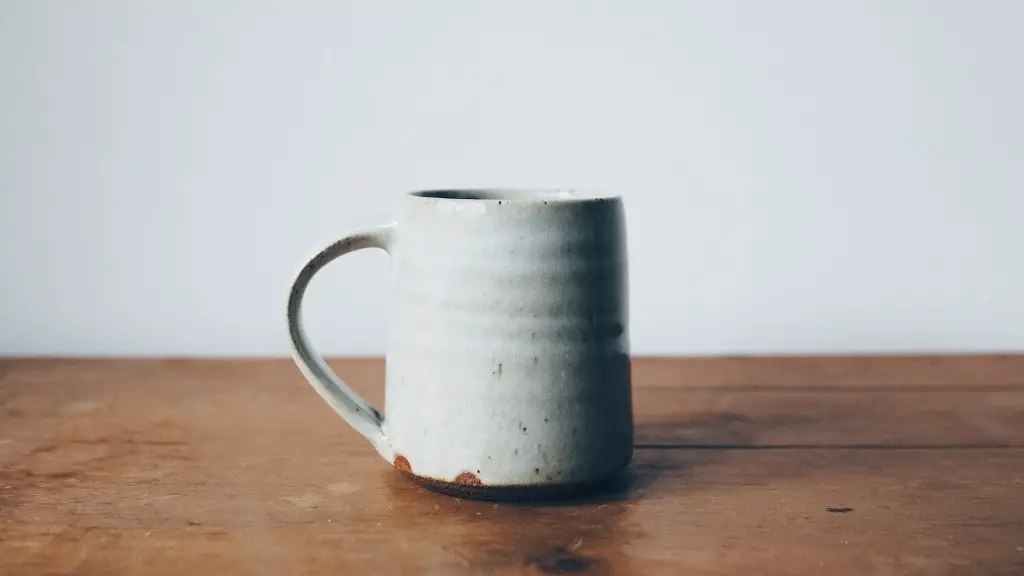How Much Coffee is Too Much?
Coffee is one of the world’s most consumed beverages, with billions of cups being brewed every year. It’s popular because of its energizing effects; however, is it possible to drink too much coffee and can it be lethal? Studies have shown that consuming too much caffeine – the main component of coffee – can cause serious health problems and possible death, though the exact quantity is uncertain.
Caffeine is a stimulant and is consumed mainly for its energizing effects which make people feel more alert and awake. It works by blocking the effects of adenosine, which is a neurotransmitter responsible for sleep. The amount of caffeine needed to have this effect depends on the individual.
In moderate amounts, caffeine has been linked to various health benefits such as increased energy levels, improved focus, lower risk of developing type-2 diabetes and Parkinson’s disease, and improved physical performance. However, consuming too much caffeine can have serious health consequences.
The maximum safe dosage according to the European Food Safety Authority (EFSA) is 400 milligrams per day. That amount is the equivalent of 4-5 cups of coffee (depending on the type of coffee beans used and the brewing method). Consuming any more than this amount can increase the risk of developing insomnia, anxiety, restlessness, irritability, irregular heart rhythm, and high blood pressure. In extreme cases, death due to cardiac arrhythmias can occur.
Studies have found that consuming more than 10 times the recommended amount (4,000 milligrams of caffeine) can lead to a lethal overdose, though the exact amount needed to cause death varies from person to person. It is important to know how much caffeine you are consuming and to stick to the EFSA’s recommended amount.
Caffeine in Other Beverages
In addition to coffee, there are many other sources of caffeine including energy drinks, tea, soft drinks, and chocolate.
The amount of caffeine in energy drinks, such as Red Bull and Monster, can be incredibly high, often containing up to 250 milligrams per can. This amount is 2.5 times the EFSA’s recommended dosage. As a result, it is important to be aware of the caffeine content of energy drinks and to limit their consumption.
Tea is also a source of caffeine, though the amount tends to be much lower than energy drinks. The average cup of tea contains about 40- 50 milligrams of caffeine, depending on the type of tea and the brewing method used. That is about half the amount in a single cup of coffee.
Soft drinks, such as Coca-Cola, can also contain caffeine, though the amount is generally low. A standard can of Coke contains around 30-35 milligrams of caffeine. This amount is lower than a single cup of coffee, but it can add up if more than one can is consumed in a single day.
Chocolate is also a source of caffeine, though the amount is generally very low. The average bar of chocolate contains around 8-30 milligrams of caffeine, depending on the type and amount of cocoa used.
Coffee vs Energy Drinks
When it comes to caffeine, coffee and energy drinks are both popular options, but which one is the better choice?
There are several advantages to drinking coffee. For one, it is much cheaper than energy drinks and easier to find. In addition, the amount of caffeine in a cup of coffee can be easily adjusted and the beans used can vary in caffeine content. Coffee also contains antioxidants, compounds that can help reduce inflammation and fight oxidative stress.
However, energy drinks have their own advantages. They contain added ingredients such as taurine and guarana, which are thought to provide additional energy and alertness. Additionally, energy drinks can be more convenient than coffee and some people prefer their taste.
Coffee Addiction & Withdrawal
Though it is possible to develop a dependence on coffee, it is uncommon. Caffeine dependency is most likely to occur in people who are drinking large amounts of coffee (6-7 cups per day) or energy drinks daily. When people suddenly stop consuming large amounts of caffeine they may experience withdrawal symptoms such as headache, irritability, difficulty concentrating, and fatigue.
The Risk of Pregnancy & Caffeine
Caffeine is also known to cross the placenta and can affect an unborn child. Studies have shown that consuming large amounts of caffeine (400mg or more per day) during pregnancy can increase the risk of miscarriage and stillbirth. For this reason, pregnant women are advised to limit their caffeine intake to 200 milligrams or less per day.
Drinking Too Much Coffee & Death
Though it is possible to die from too much coffee, there is no set amount that causes death. The lethal dosage depends on the individual and it is impossible to say exactly how much caffeine is good for each person. It is important to be mindful of the amount of caffeine you are consuming and to stick to the EFSA’s recommended dosage of 400 milligrams per day.
Alternative Sources of Energy
If you are looking for an energizing beverage without the health risks of caffeine, there are many other options to choose from. Yerba mate is a popular South American herbal drink that contains polyphenols and plant-based stimulants such as theobromine and theophylline. Matcha tea is a type of green tea that is high in antioxidants and contains roughly the same amount of caffeine as a cup of coffee. A small piece of dark chocolate can also provide a natural energy boost.
Herbal Supplements for Energy & Focus
Ginkgo biloba and ginseng are two popular herbal supplements used for their energizing and focus enhancing properties. Studies have shown that both of these herbs can help improve mental clarity and focus while reducing fatigue. This can make them great alternatives to caffeine if you are looking to get an energy boost without the risk of developing a dependence or experiencing unwanted side effects.
Healthy Lifestyle Habits for Improved Energy & Alertness
The best way to increase energy and alertness is to focus on lifestyle habits. Eating a balanced diet that is rich in fruits, vegetables, whole grains, and lean proteins can help provide natural energy throughout the day. Exercise is also important and can help improve sleep quality and energy levels. Additionally, it is important to get enough sleep (7-9 hours) to ensure that the body is well-rested and can perform optimally.


